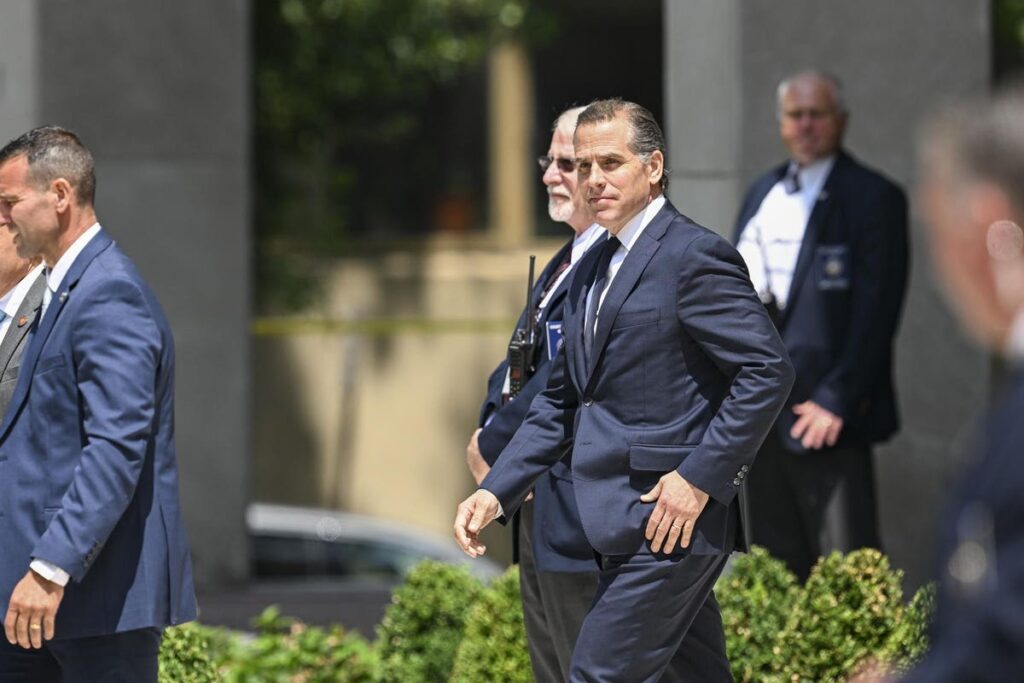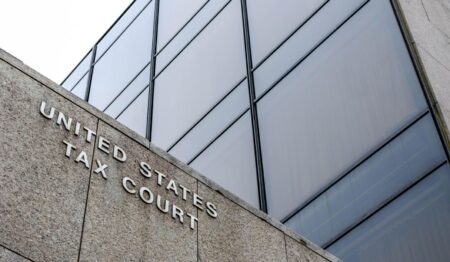In June of 2023, Hunter Biden, the son of President Joe Biden, was charged with tax and gun charges as part of a plea deal. This week, new information about the related plea agreement, including documentation, was made available.
(You can read my prior coverage here.)
Charges
Biden had initially agreed to plead guilty to two charges of failure to pay under section 7203 of the Tax Code. That section covers a wide variety of offenses, including:
- failure to pay estimated tax or tax;
- failure to file a return;
- failure to keep records; and
- failure to supply information.
As part of the agreement, the gun charge was to be treated as a diversion case. That means he would not be technically pleading guilty to gun charges—criminal possession of a gun can be considered a felony—but will enter a program for nonviolent offenders with substance abuse problems.
Court Appearance
As noted in prior coverage, Biden was required to appear in court to answer the charges officially, and a judge must approve the plea deal. That happened on July 26, 2023, when Biden appeared in front of U.S. District Judge Maryellen Noreika, who expressed concern over some of the details in the agreement.
Noreika was specifically interested in how the plea agreement, which involved charges related to failure to pay taxes and a gun possession charge, were tied together. As a result, she has requested additional information about the deal.
Related Documents
In the meantime, there’s been a lot of speculation about what was revealed during the investigation. NBC News requested that the related documents be made public, and Noreika agreed. You can read those documents here. The documents include a Memorandum of Plea Agreement and Exhibit 1, which is a statement of facts agreed to by Biden and his lawyers, as well as the federal prosecutors.
The documents don’t particularly reveal anything new—they largely focus on Biden’s behavior from 2015 to 2020. His drug use and prolific spending have previously been detailed in the media and in his 2021 autobiography.
Facts
The facts indicate that in 2017, “despite his addiction, Biden successfully entered into business ventures and landed legal clients, earning millions of dollars.” Specifically, according to those court documents, Biden earned just under $1 million from a company he formed with the CEO of a Chinese business conglomerate, $666,666 from his domestic business interests, $644,000 from a Chinese infrastructure investment company, $500,000 in director’s fees from a Ukrainian energy company, $70,000 relating to a Romanian business and $48,000 from a law firm.
He received over $2.6 million in similar income in 2018.
Biden did have an accountant during those years who prepared his tax returns. However, despite pushes from his accountant, Biden did not pay or file on time. He did not pay until 2021, when a third party helped him pay approximately $1 million for each year.
Tax Matters
Even though it has been suggested that Biden escaped penalties and interest with the plea deal—which would have been highly unusual—the agreement indicates that did not happen. According to the statement of facts, penalties and interest were applied for 2017 and 2018.
Questions have also been raised about other tax years. Those were also addressed in the documents, which noted that Biden’s accountants discovered in 2020 that his 2016 return had yet to be filed (by 2020, he had a new accountant—his previous accountant had died). The amount due initially was $492,895, of which $447,234 was timely paid. The balance due was just under $50,000, which was paid along with penalty and interest in 2021 by a third party.
Biden timely filed his 2019 return but did not timely make his estimated payments. His tax liability of $197,392, plus interest and penalties, was paid in 2021, again by a third party.
Many tax professionals reading this story are likely nodding—one only needs to click over to Twitter (now X) to see complaints about taxpayers not providing information timely or failing to sign and return documents needed to file timely. And in June of this year, the IRS issued a reminder to taxpayers that missed the April 18 tax deadline to take action by June 14, 2023, to avoid a larger late-filing penalty. That’s because the IRS typically assesses a penalty when you owe taxes or haven’t filed a tax return. Interest also accrues on unpaid balances—and penalties (yes, the IRS charges interest on penalties).
What is even more common is a failure to pay. In the U.S., we have a pay-as-you-go system. That means that taxes are typically withheld from wages—that’s the amount of your paycheck that your employer holds and remits directly to the IRS—or in the case of certain other income, payments may be subject to a flat withholding rate. If you will owe more than $1,000 due to business or other taxable income not subject to withholding, you normally must make estimated tax payments. Those mechanisms help keeps most tax bills manageable come tax time.
When You Don’t Pay-As-You-Go
When it comes to paying as you go, Biden made two big, but not uncommon, mistakes. One, as noted, he did not timely make estimated tax payments. More importantly, as indicated in the court documents, he withdrew “substantial funds” outside of payroll—typically legal, but often problematic. The payroll system that was set up had “been created, in part, to ensure that Biden had sufficient withholdings to pay any outstanding tax liability.” That’s the equivalent of an everyday business owner taking money out of their account rather than via a paycheck—the business owner might be entitled to the money, but it is still subject to tax.
That combination—failure to make estimated tax payments and taking taxable distributions without withholding—is problematic. Most of my clients who find themselves in tax trouble typically didn’t arrange for appropriate withholding and failed to make estimated payments. The resulting tax liabilities, combined with interest and penalty, can add up quickly.
Fallout
As noted in prior coverage, failure to pay does not typically result in jail time. It’s considered a misdemeanor and usually means fines of up to $25,000, though prison time of up to a year can be tacked on if the situation warrants.
A misdemeanor failure to pay can be escalated to a felony in some cases. According to the Department of Justice manual, those involve individuals who fail to file tax returns or pay a tax “but who also commit acts of evasion or obstruction.” In that case, the charges would be brought as felonies under sections 7201 or 7212(a). That’s not the case here—likely because Biden paid the tax due and cooperated with authorities.
And, despite memes that suggest otherwise, it is not a crime for a third party to pay your tax bill. While the source of the funds might not be concerning for political or security reasons, the IRS typically doesn’t care who pays so long as they get paid. The source of the money doesn’t even have to be a member of your family—Charlie Sheen infamously gifted Lindsay Lohan $100,000 to pay down her tax bill in 2012.
Concerns
In addition to the consolidation of charges, Noreika also seems to be concerned about whether the agreement protects Biden from further prosecution. As part of the diversion agreement, the government confirmed it would not criminally prosecute Biden “for any federal crimes encompassed by the attached Statement of Facts.” The deal would not apply to any future conduct.
That should mean that Biden wouldn’t be prosecuted for the gun charge or the tax-related conduct as laid out in the Statement of Facts. However, there seems to be some disagreement between the parties—and Noreika—about what that means. Noreika has requested additional information for clarification.
The civil treatment of the tax-related charges is more straightforward. The agreement includes a provision that “The parties further understand that if the Internal Revenue Service determine there are taxes due and owing for tax years 2014-2019, they are not subject to the terms of this agreement.” That should mean the IRS may assess additional tax if new information is available.
The Delaware U.S. Attorney’s office and Biden’s lawyers did not immediately respond to requests for comment.
What’s Next?
At the hearing, Noreika asked Biden, “Without me saying I’ll agree to the plea agreement, how do you plead?”
Biden responded, “Not guilty, your honor.”
Biden is expected to reverse his guilty plea if he reaches a new agreement or the additional information satisfies Noreika’s concerns. A new hearing is expected in about six weeks.
Read the full article here













